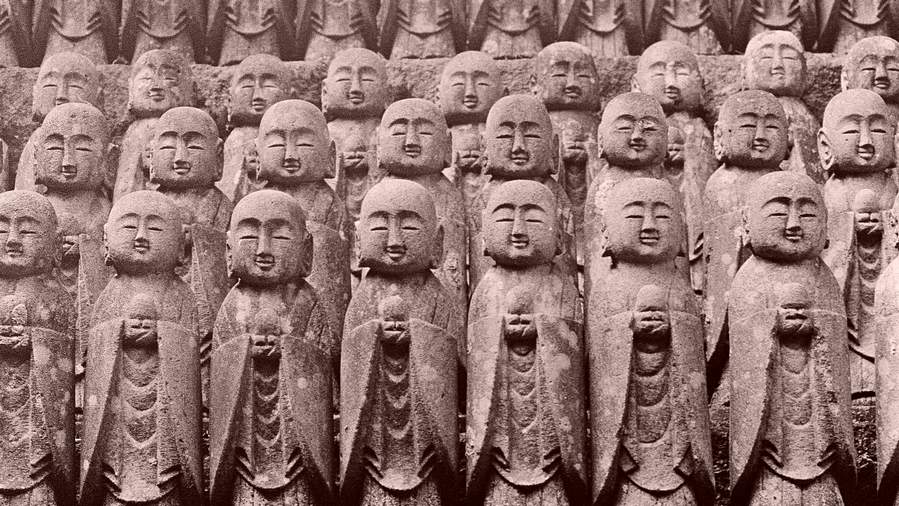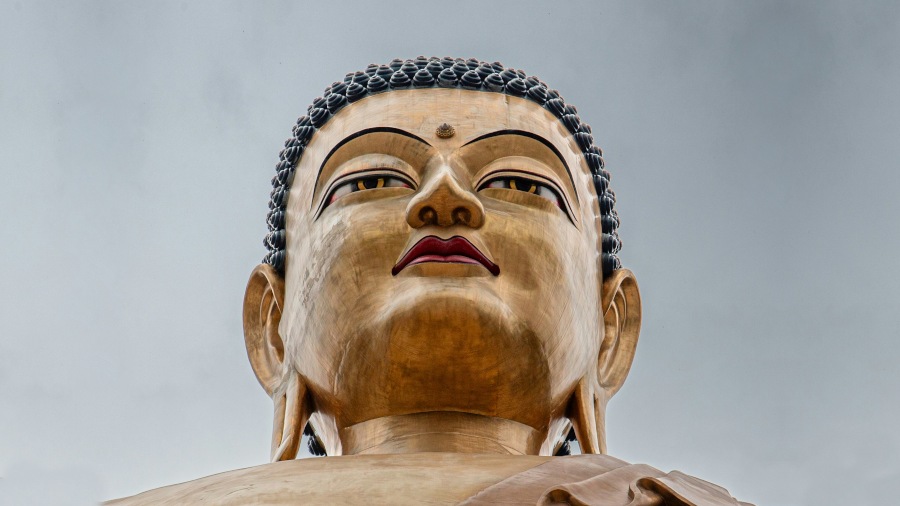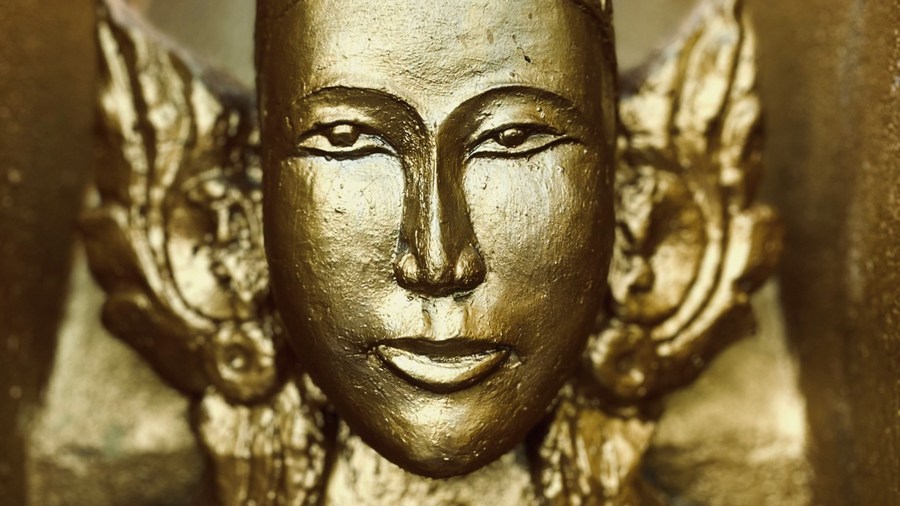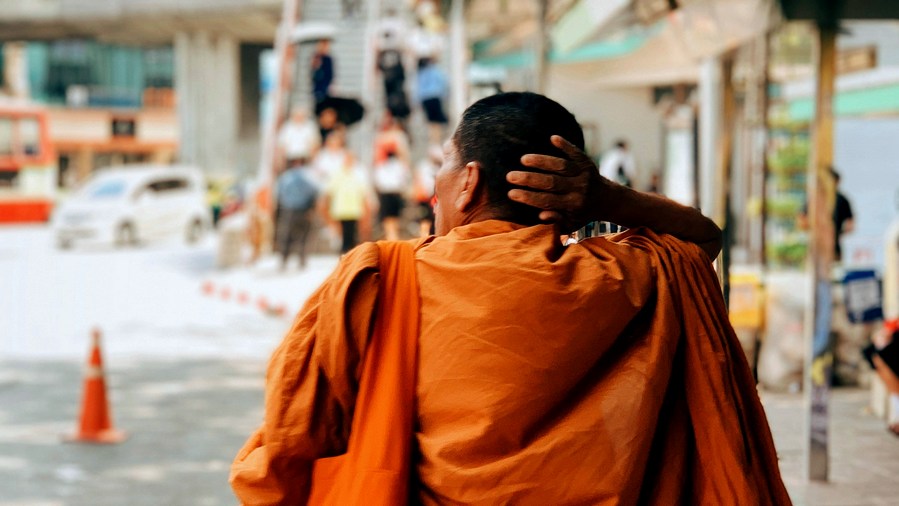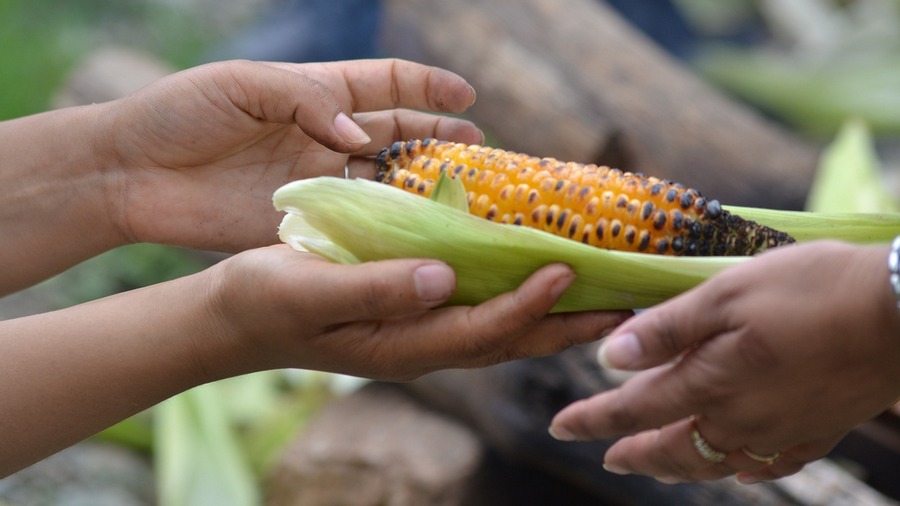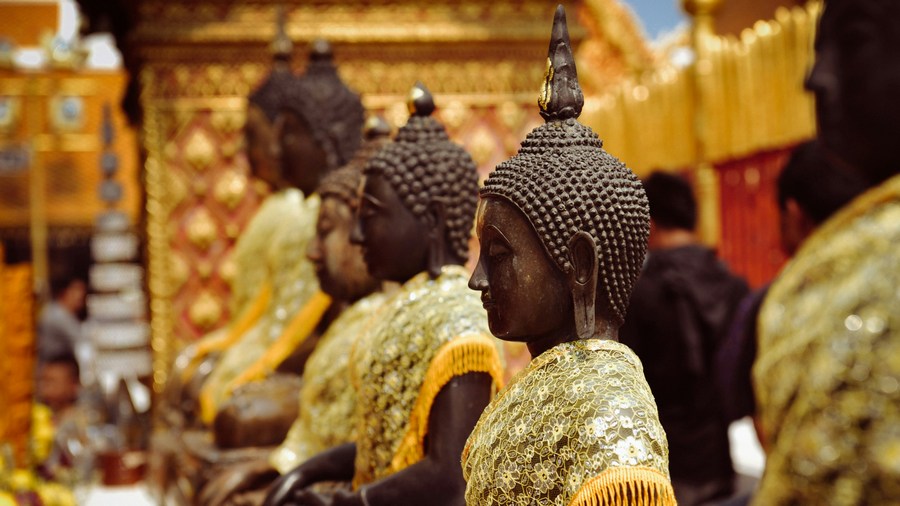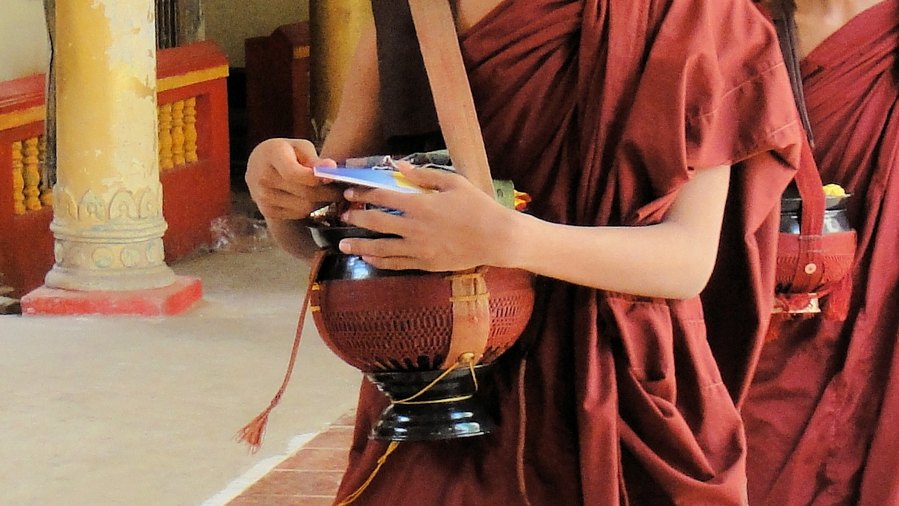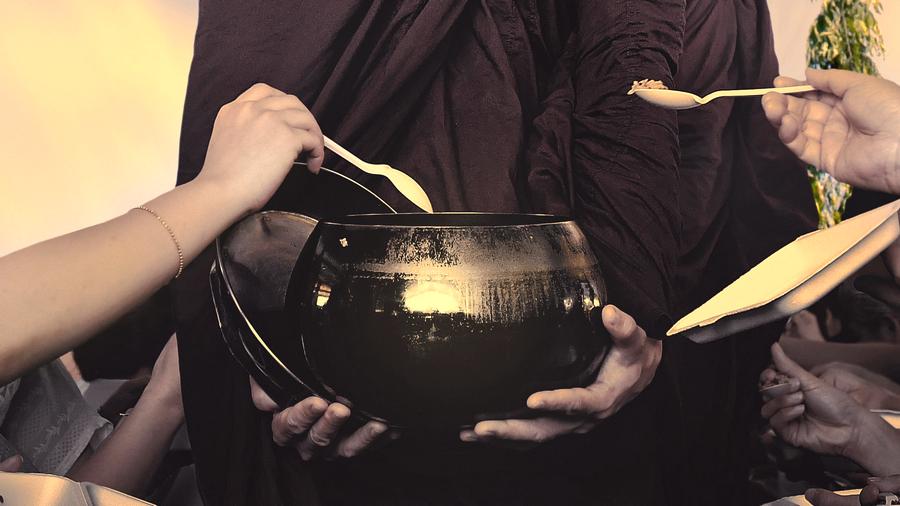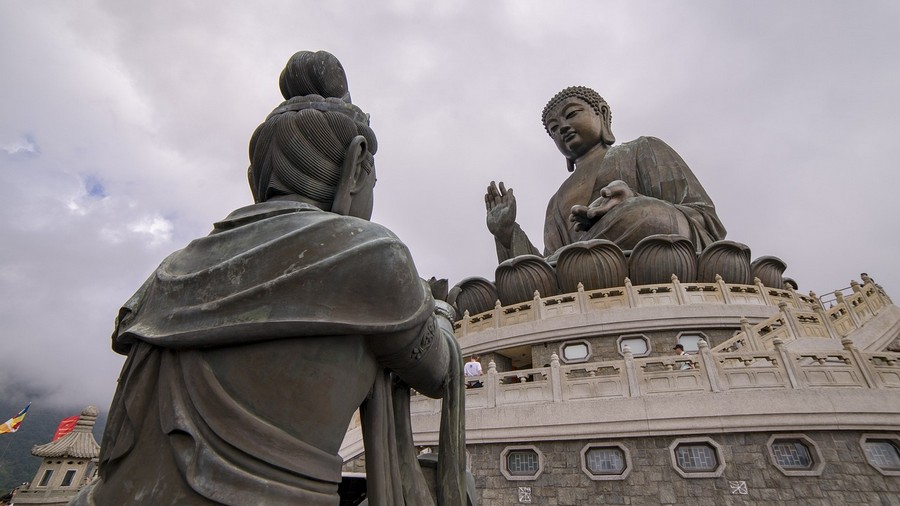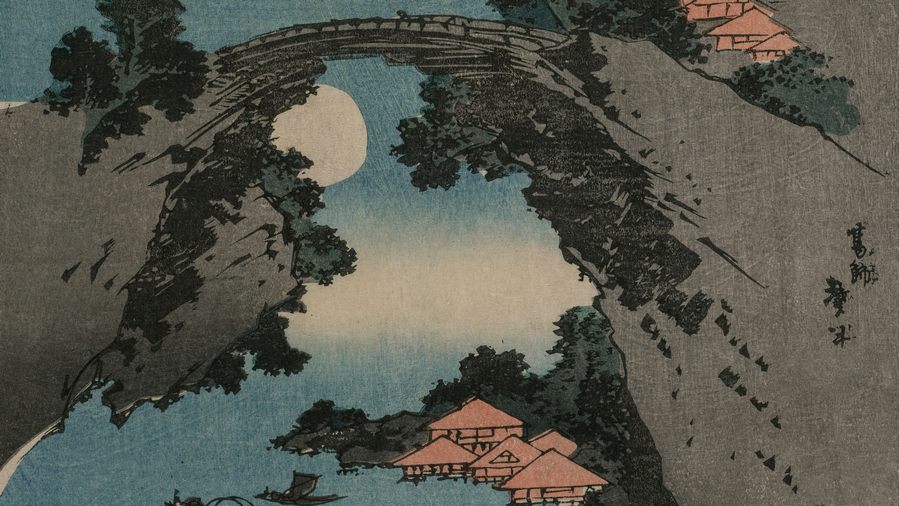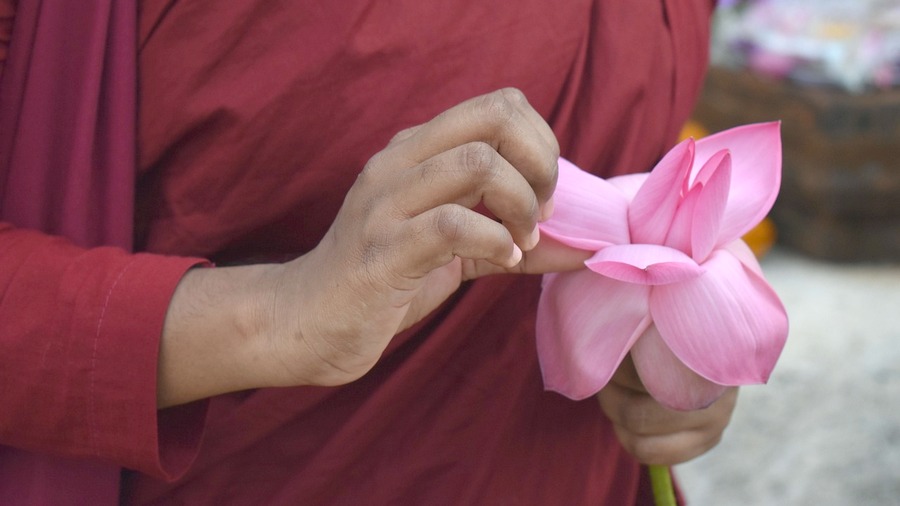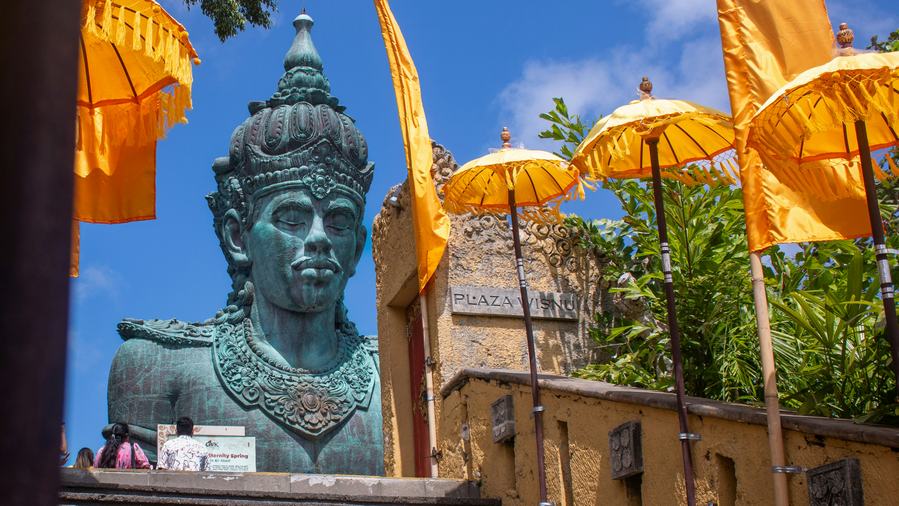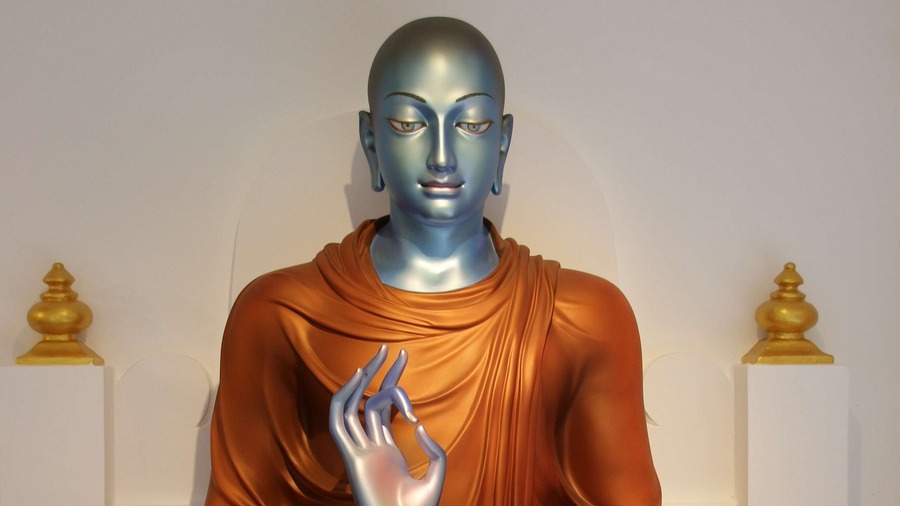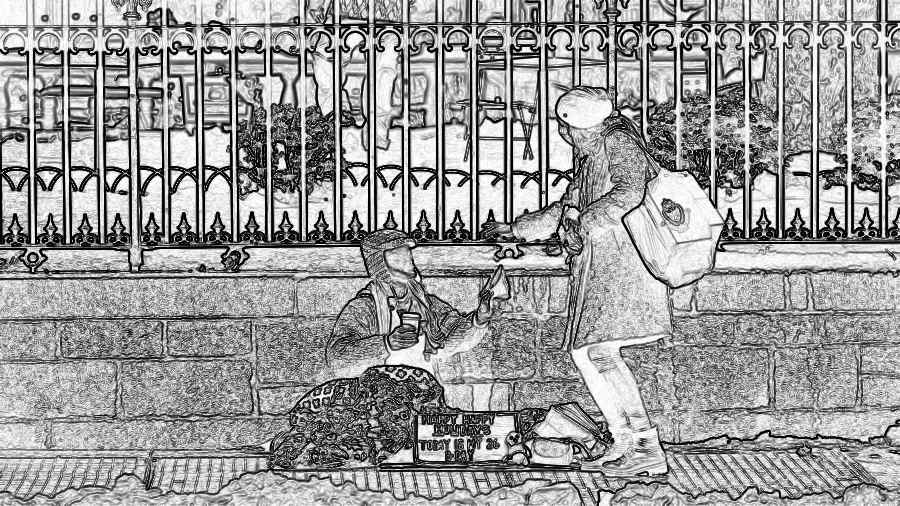So I have heard. At one time the Buddha was staying near Rājagaha, on the Vulture’s Peak Mountain. Then the student Māgha approached the Buddha and exchanged greetings with him. When the greetings and polite conversation were over, he sat down to one side, and said to the Buddha:
“I’m a giver, Mister Gotama, a donor; I am bountiful and committed to charity. I seek wealth in a principled manner, and with that legitimate wealth I give to one person, to two, three, four, five, six, seven, eight, nine, ten, twenty, thirty, forty, fifty, a hundred people or even more. Giving and sacrificing like this, Mister Gotama, do I accrue much merit?”
“Indeed you do, student. A giver or donor who is bountiful and committed to charity, who seeks wealth in a principled manner, and with that legitimate wealth gives to one person, or up to a hundred people or even more, accrues much merit.” Then Māgha addressed the Buddha in verse:
“I ask the bountiful Gotama,”
said Māgha,
“wearing an ochre robe, wandering homeless.
Suppose a lay donor who is committed to charity
makes a sacrifice seeking merit, looking for merit.
Giving food and drink to others here,
how is their offering purifed?”
“Suppose a lay donor who is committed to charity,”
replied the Buddha,
“makes a sacrifice seeking merit, looking for merit,
giving food and drink to others here:
such a one would succeed due to those
who are worthy of donations.”
“Suppose a lay donor who is committed to charity,”
said Māgha,
“makes a sacrifice seeking merit, looking for merit,
giving food and drink to others here:
explain to me who is worthy of donations.”
“Those who wander the world unattached,
consummate, self-controlled, owning nothing:
that is where a brahmin seeking merit
should bestow a timely offering as sacrifice.
Those who have cut off all fetters and bonds,
tamed, liberated, untroubled, with no need for hope:
that is where a brahmin seeking merit
should bestow a timely offering as sacrifice.
Those who are released from all fetters,
tamed, liberated, untroubled, with no need for hope:
that is where a brahmin seeking merit
should bestow a timely offering as sacrifice.
Having given up greed, hate, and delusion,
with defilements ended,
the spiritual journey completed:
that is where a brahmin seeking merit
should bestow a timely offering as sacrifice.
Those in whom dwells no deceit or conceit,
with defilements ended,
the spiritual journey completed:
that is where a brahmin seeking merit
should bestow a timely offering as sacrifice.
Those rid of greed, unselfish, with no need for hope,
with defilements ended,
the spiritual journey completed:
that is where a brahmin seeking merit
should bestow a timely offering as sacrifice.
Those not fallen prey to cravings,
who, having crossed the flood, live unselfishly:
that is where a brahmin seeking merit
should bestow a timely offering as sacrifice.
Those with no craving at all in the world
for any state of existence in this life or the next:
that is where a brahmin seeking merit
should bestow a timely offering as sacrifice.
Those who have left sensuality behind,
wandering homeless,
self-controlled, straight as a shuttle:
that is where a brahmin seeking merit
should bestow a timely offering as sacrifice.
Those freed of greed, with senses stilled,
like the moon released from the eclipse:
that is where a brahmin seeking merit
should bestow a timely offering as sacrifice.
Those calm ones free of greed and anger,
for whom there are no destinies,
being rid of them in this life:
that is where a brahmin seeking merit
should bestow a timely offering as sacrifice.
They’ve given up rebirth and death completely,
and have gone beyond all doubt:
that is where a brahmin seeking merit
should bestow a timely offering as sacrifice.
Those who live as their own island,
everywhere free, owning nothing:
that is where a brahmin seeking merit
should bestow a timely offering as sacrifice.
Those here who know this to be true:
‘This is my last life, there are no future lives’:
that is where a brahmin seeking merit
should bestow a timely offering as sacrifice.
A knowledge master, loving absorption, mindful,
who has reached awakening and is a refuge for many:
that is where a brahmin seeking merit
should bestow a timely offering as sacrifice.”
“Clearly my questions were not in vain!”
said Māgha,
“The Buddha has explained to me
who is worthy of donations.
You are the one here who knows this to be true,
for truly you understand this matter.
Suppose a lay donor who is committed to charity
makes a sacrifice seeking merit, looking for merit,
giving food and drink to others here:
explain to me how to accomplish the sacrifice.”
“Sacrifice, and while doing so,”
replied the Buddha,
“be clear and confident in every way.
Sacrifice is the ground standing upon which
the sacrificer sheds their flaws.
One free of greed, rid of anger,
developing a heart of limitless love,
spreads that limitlessness in every direction,
ever diligent day and night.”
“Who is purified, freed, awake?
How can one go to the realm of divinity oneself?
I do not know, so please tell me when asked,
for the Buddha is the divinity I see in person today!
To us you are truly the equal of divinity.
Splendid One, how is one reborn
in the realm of divinity?”
“One who accomplishes the sacrifice
with three modes,”
replied the Buddha,
“such a one would succeed
due to those who are worthy of donations.
Sacrificing like this, one rightly committed to charity
is reborn in the realm of divinity, I say.”
When he had spoken, the student Māgha said to the Buddha, “Excellent, Mister Gotama! Excellent! … From this day forth, may Mister Gotama remember me as a lay follower who has gone for refuge for life.”
Read this translation of Snp 3.5 Māghasutta: With Māgha by Bhikkhu Sujato on SuttaCentral.net. Or read a different translation on DhammaTalks.org. Or listen on SC-Voice.net. Or explore the Pali on DigitalPaliReader.online.
Or read a translation in Afrikaans, Deutsch, Bahasa Indonesia, 日本語, မြန်မာဘာသာ, Nederlands, Norsk, Русский, සිංහල, or தமிழ். Learn how to find your language.



